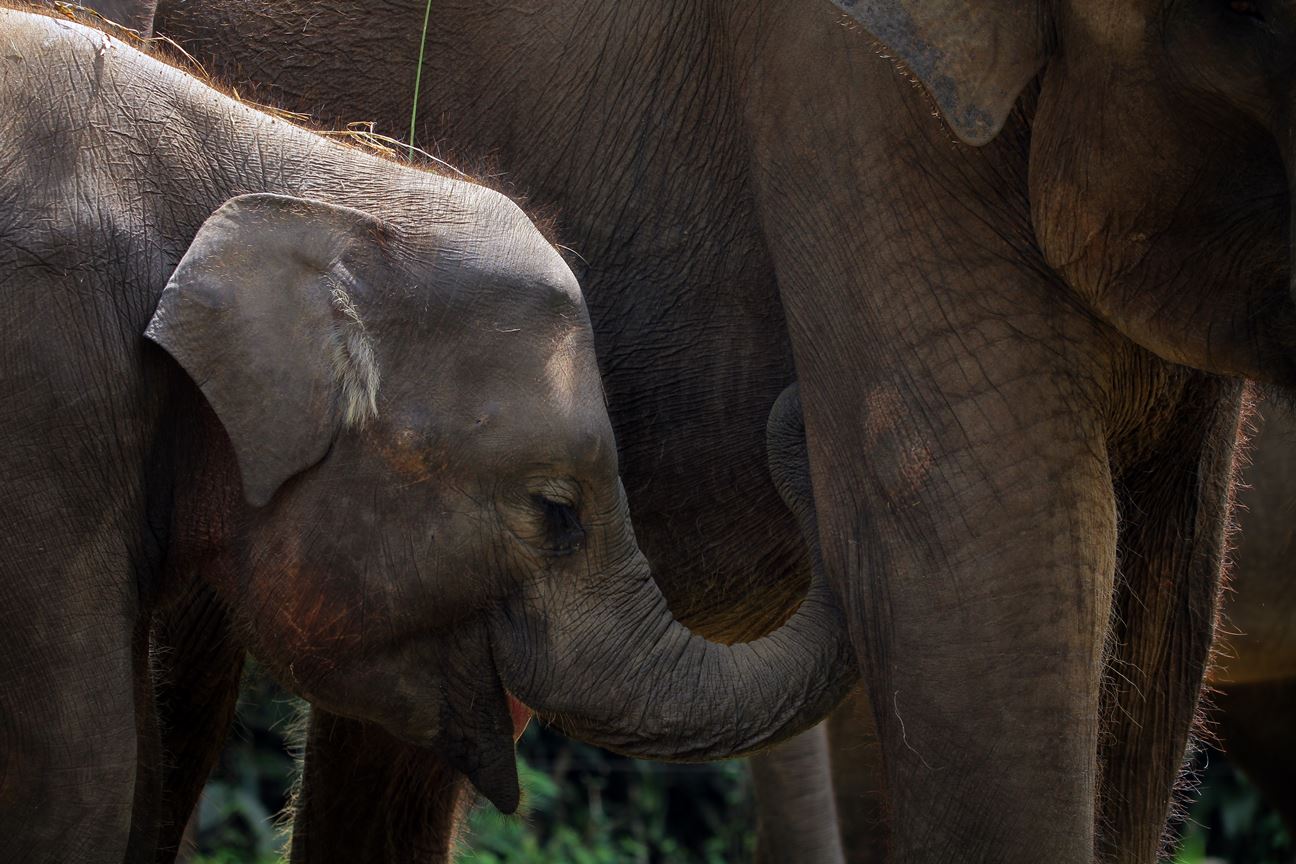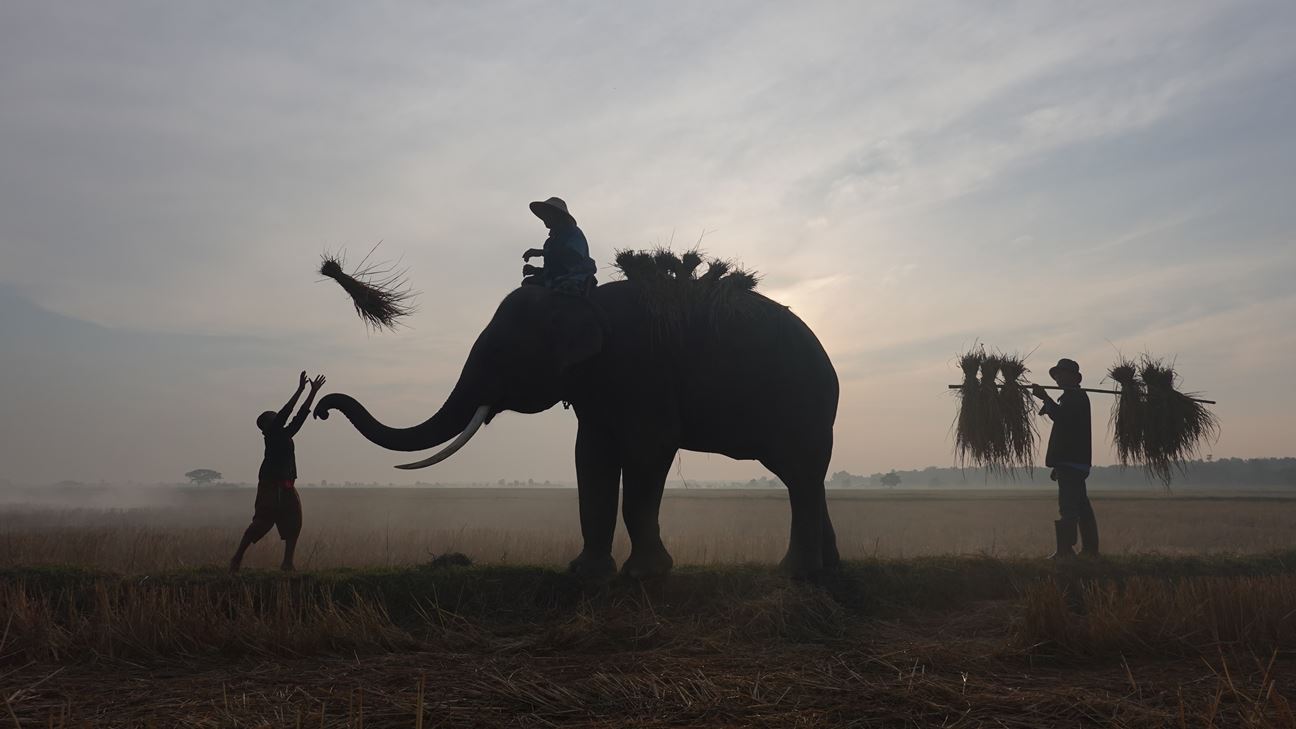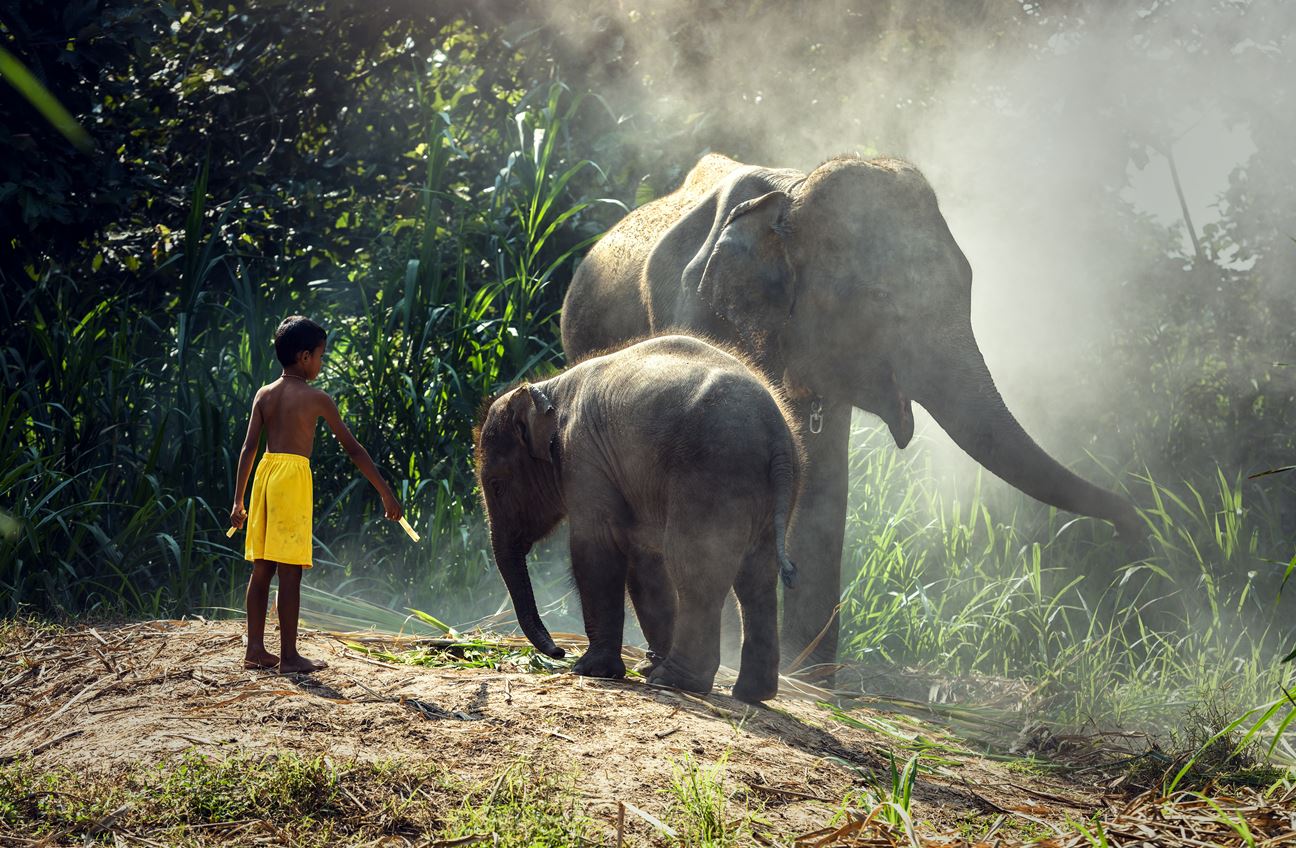The Oscar-winning documentary, "The Elephant Whisperers", says a thing or two about human-elephant relationships, which have taken a turn for the worse in recent times. Let's turn the tables.
If you step into the heart of the Theppakadu Elephant Camp, nestled deep in the lush forests of Tamil Nadu, the enchanting landscape may instantly teleport you to the world of the recent Oscar-winning documentary, "The Elephant Whisperers." The film presents a captivating tale, which has brought to light the beauty of human-animal bonds that can come about when love, warmth, and understanding exist between them. However, even as the story paints a heartwarming picture of the loving friendship between two caregivers and their elephants, beneath this soul-stirring documentary lies a dark and harsh reality that threatens human-elephant relationships.

The heart-melting friendship between human and elephant, as depicted in the movie has its beginnings in a spine-chilling past. Raghu, the elephant, ends up living with his human companions as a result of his abandonment by the herd after his mother was electrocuted when the group wandered into a village in search of water.
Sadly, this is a common experience for elephants in India.
Because of a rapid loss of habitat and resources, elephants are forced to wander into areas occupied by humans, resulting in serious conflicts and disastrous consequences for both parties. In the last decade, Odisha alone has witnessed the loss of 784 elephants, and between 2018-2021, India reported that 222 elephants were killed by electrocution, 45 by trains, 29 by poachers, and 11 by poisoning. Humans, thus, also suffer as elephants raid crops, destroy property, and cause fatalities.
Mitigating this human-elephant conflict is crucial for both the conservation of elephants and for preserving the safety and livelihoods of humans living in elephant habitats. Understanding how this conflict arises and finding potential solutions can be a big step in resolving this issue.
The Essence of The Conflict
The crux of this issue is quite simple: our elephants are being driven out of their homes.
As human populations grow, forested areas are converted into agricultural fields, settlements, and infrastructure projects. In turn, as the elephants belonging here end up venturing out into man-occupied areas in search of food and water, the human-elephant conflict tally rises.
As their natural habitats continue to be destroyed, elephants turn to man-made vegetation to fulfill their biological needs. They’re notoriously popular for raiding crops, causing crop damage and financial losses for the farmers who put years of effort into their harvest. Naturally, they grow resentful and retaliate.

Moreover, with the construction of highways, railways, and other infrastructure projects, we have intruded into elephant habitats, increasing the likelihood of human-elephant contact and making it difficult for elephants to move freely between forest areas.
Another reason for the conflict is climate change. Climate change has resulted in changes to weather patterns and rainfall, leading to the drying up of water sources. Elephants, in search of water, often enter human settlements, causing clashes.
The human-elephant conflict has severe consequences, including economic losses for farmers due to said crop damage and human injuries, and even human casualties owing to elephant attacks. Elephants can be extremely dangerous when they feel threatened or cornered, and incidents of elephant attacks on humans are not uncommon. In some cases, these attacks can even be fatal. The ramification are not one-sided, as humans strike back with the same intensity, leading to a drop in the elephant population.
However, the bottom line of all these problems is that human-elephant conflicts are playing a major part in the story of elephant conservation in India — the part being a major challenge that we must overcome. As we speak, elephants continue to both lose their forest ecosystems while also being turned away by resentful human populations. With India being home to more than 50% of the world’s Asian elephant population, this issue is urgent and needs to be addressed.
Overcoming the Challenge
It goes unsaid that this human-elephant crisis is a complex one, and efforts to protect both species are in order for a sustainable future for all. Fortunately, there are several ways to mitigate this conflict. Here are some ways to help:
Habitat restoration
One of the most effective ways to mitigate human-elephant conflict is to restore and protect elephant habitats. By rightfully giving back their homes, we can reduce interactions by a large margin and facilitate the peaceful living of both communities. By creating elephant corridors and protected areas, and making reforestation efforts to provide elephants with the necessary food and water resources, we can help prevent elephants from turning to human settlements for resources.
Crop protection
Farmers can also protect their crops from elephant raids by using a variety of methods such as installing electric fences or using chilli-based deterrents. These methods can help minimize crop damage and financial losses for farmers.
Community engagement
Involving local communities in elephant conservation efforts can also help mitigate the human-elephant conflict. Educating them on elephant behavior and habitat needs can foster a greater understanding and appreciation of these magnificent creatures while providing economic incentives for conservation efforts can encourage them to take part in conservation activities and reduce hostility towards elephants.
Technological solutions
Technological solutions such as early warning systems that alert farmers of approaching elephants and GPS tracking to monitor elephant movement patterns can help prevent conflicts and minimize the risk of human-elephant encounters.

The human-elephant conflict in India is a multifaceted problem that poses a threat to the survival of both elephants and humans. As a society, we must recognize the gravity of this issue and take collective action to resolve it. In India, elephants have always been considered sacred, respected, and beloved. It's upsetting that today's conflicts and clashes have led to a strained relationship between us. If anything, "The Elephant Whisperers" shows us how valuable our relationships with our elephants can be when we truly cherish and care for each other. Let us make our land a place for us to coexist peacefully, just as it has been in the past.